
In his letters, Heaney weighed his competing obligations as a poet.
When people asked the poet Seamus Heaney what it was like to be living in Belfast, Northern Ireland, at the start of the Troubles, he tended to downplay the violence: “Things aren’t too bad in our part of the town.” But things were, in fact, quite bad. A kind of martial law obtained. British soldiers, brought in to suppress a Catholic civil-rights movement, ran checkpoints, frisked young men, and stopped drivers for the smallest infractions. Aggressive slogans adorned buildings: “Keep Ulster Protestant,” “Keep Blacks and Fenians Out of Ulster.” Worst of all were the bombs, which exploded everywhere and seemingly at random: in department stores, in transit centers, in pubs, in banks. Some were planted by the Provisional Irish Republican Army, others by Protestant vigilantes.
These developments alarmed Heaney the citizen—a lifelong Northerner, an Irish Catholic—and they challenged Heaney the poet. Should he, in his art, respond to the conflict—and, if so, how? To write his first two, well-received collections, he had started in what he called “the ground of memory and sensation,” often with scenes drawn from domestic life. Poems typically appeared to him spontaneously, like figures emerging from a mist. “It would wrench the rhythms of my writing procedures to start squaring up to contemporary events with more will than ways to deal with them,” he wrote in the Guardian in 1972, as the violence in the North was escalating.
This story is from the September 09, 2024 edition of The New Yorker.
Start your 7-day Magzter GOLD free trial to access thousands of curated premium stories, and 9,000+ magazines and newspapers.
Already a subscriber ? Sign In
This story is from the September 09, 2024 edition of The New Yorker.
Start your 7-day Magzter GOLD free trial to access thousands of curated premium stories, and 9,000+ magazines and newspapers.
Already a subscriber? Sign In

SOME PERSONAL NEWS
The rise and rise of the entrepreneurial work ethic.

ARMCHAIR QUARTERBACK
Tom Brady's second act, as a football commentator.
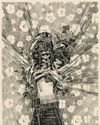
A VISIT FROM THE CHIEF
Lidia often went to the third floor of the Graziano Institute and sat down on the wooden bench there, right across from her mother's room.
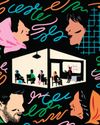
LANGUAGE LESSONS
Sanaz Toossi's “English” arrives on Broadway.

THE WITNESS
An activist fled Syria to reveal Assad's crimes. Then, mysteriously, he went back.
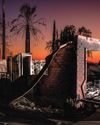
LINE OF FIRE
The fight to contain an inferno in Los Angeles.
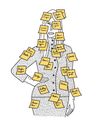
PRODUCTION NOTES: "MELANIA"
Amazon has agreed to pay $40 million to license a Melania Trump documentary, as Jeff Bezos makes overtures to Trump

CAPYBARA, MON COEUR
A giant crush on a giant rodent.
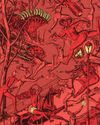
KNOCKIN' ON HEAVEN'S DOOR
It's never too early to imagine the end of the world.

PRIVATE EYE
How Celia Paul paints presence.